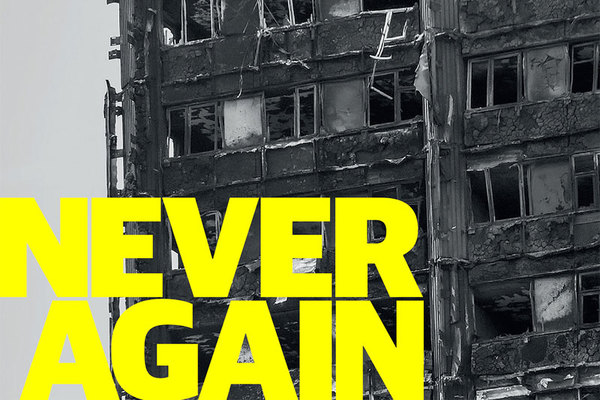You are viewing 1 of your 1 free articles
Public concern about housing continues to rise, but can the sector capitalise?
The latest polling from Ipsos Mori shows that more and more people are citing housing as a concern. Sarah Newey finds out what this means for the sector
Ask the average person in the street what issues they are most concerned about and until recently, housing has been unlikely to be among them.
But the topic has been dominating headlines, and not just because of the Grenfell fire. Over the past 12 months affordability, homelessness and supply have been hotly debated, and we’ve seen one of the first ‘housing budgets’ for years.
This rise of housing up the agenda is also borne out in recent polling.
According to the latest Ipsos Mori Issues Index, 19% of people now think housing is a significant problem, and concerns have been on the rise since 2010; the last time less than 10% of people were worried was July 2013.
So what does this mean for the social housing sector, and how can the sector make the most of it?
The Ipsos Mori Issues Index results are based on face-to-face interviews with a weighted sample of 999 participants, who were asked unprompted questions about what they considered to be the most important issues facing Britain.
Ben Marshall, research director at Ipsos Mori, says there have only been five instances when the public has been more concerned about housing since the Issues Index began in September 1974.
“I think the gradual growth of concern since 2010 is striking,” he says. “There is likely to be a ratchet effect here: public concern creates media and political attention, which creates public concern.”
When David Cameron became prime minister in May 2010, housing was the 17th priority for the British public, with just 5% of people saying it was an issue of importance. Just after the Brexit vote, in August 2016, 22% of people said housing was a concern – the highest response since 1974.
Similarly, after the Grenfell fire in June the percentage of people worried increased from 17% to 19%, suggesting that greater media coverage after significant events or elections increases public awareness.
Boris Worrall, chief executive of Rooftop Housing Group, says this publicity is good for the social housing sector: “The growing profile of housing on the public and political agenda of course reflects the reality on the ground of a housing crisis playing out in cities, towns and villages across Britain.
“We now have a combination of public awareness and political support, which means we can push hard for what we believe matters: funding for social homes but also our wider role in communities.”
The Budget in November demonstrates the increased political attention housing has gained. Although many have argued the chancellor may not have done enough on affordability, Philip Hammond announced a series of policies aimed to provide 300,000 net additions to the housing stock by the mid-2020s.
“We now have a combination of public awareness and political support, which means we can push hard for what we believe matters.”
But Mr Worrall also says a closer relationship with the government is essential in raising awareness of housing issues in the UK: “Housing associations have also made huge strides in getting a clear, compelling and positive story out there, while transforming a damaged and dysfunctional relationship with government into a genuine partnership. Agreement to the Voluntary Right to Buy deal in 2015 – however controversial – was the trigger, and a much stronger narrative around supply the catalyst.”
John Bryant, policy leader at the National Housing Federation, says the government needs to listen to growing public concerns, and take further action to tackle housing issues: “We’ve already seen the government respond to people’s concerns this year. The commitment of £2bn investment into social housing is very welcome. But this alone won’t solve the crisis. If housing associations are to realise their ambitions of building more homes, government must make more land available for housing, especially public land.”
Yet not everyone in Britain is concerned about housing. This year, Ipsos Mori divided the British population into five ‘tribes’, based on how likely they were to be concerned by the same issues: young, urban and unengaged; bothered by Brexit; traditional misgivings; public service worriers; and the hyper-concerned.
Housing was the equal third most important issue among the young, urban and unengaged population, who represent 28% of Britain and tend to be younger, city based and more ethnically diverse than the wider population.
For public service worriers, or 21% of people, and the hyper-concerned, representing just 4% of the population, housing was the fifth most important issue. These groups of people are more likely to be middle class, left-leaning women.
In contrast, those categorised as bothered by Brexit or with traditional misgivings, who are generally older and more conservative, were less worried about housing. They listed issues including Brexit, immigration and defence among their biggest concerns.
Alison Inman, president of the Chartered Institute of Housing, stresses that the population are divided not only by how important housing is, but also by issues within the housing sector.
“While there is a general consensus in the sector about the nature of the ‘housing crisis,’ we need to understand that this is not generally shared across the wider population,” she says. “Different groups frame the issue in completely different ways. For example for many Conservatives it’s a homeownership issue, some Leave voters see it as an immigration issue, for others it is about homelessness, or affordability, or supply.”
But Mr Bryant says fundamentally, more people are concerned because housing issues are becoming more visible.
“We know that the housing crisis is having a direct, negative impact on an increasing number of people’s lives, whether that means they’re waiting for a council house or priced out of buying their own home,” he says. “This is why housing is becoming an increasing concern to members of the public.”
Ipsos Mori Issues Index findings, November 2017
| Issue | % concerned |
| Common Market/Brexit/EU/Europe | 46 |
| NHS/hospitals/healthcare | 39 |
| Immigration/immigrants | 24 |
| Economy | 21 |
| Education | 21 |
| Housing | 19 |
| Defence/foreign affairs/terrorism | 16 |
| Poverty/inequality | 15 |
| Crime/law and order/anti-social behaviour | 14 |
| Unemployment | 11 |
Ipsos Mori Issues Index findings, 2017
| Month | % concerned about housing |
| January | 17 |
| February | 16 |
| March | 16 |
| April | 16 |
| May | 15 |
| June | 17 |
| July | 19 |
| August | 16 |
| September | 16 |
| October | 18 |
| November | 19 |
The Ipsos Mori Issues Index explained
The Ipsos Mori Issues Index began in September 1974, and had taken place on a monthly basis since the early 1980s. Ipsos Mori polls a representative quota of around 1,000 British adults over 18 in face-to-face interviews, and results are then weighted to match the population profile of Britain.
Participants are asked two questions: what they believe to be the biggest single issue facing Britain, and what the other big issues facing the country are. The questions are open and unprompted, and interviewers put the responses into a list of potential issues.
The Ipsos Mori ‘tribes’ are based on Latent Class Analysis, which is a statistical technique that identifies clusters of people with similar values or behaviours. The figures associated with issues represent the probability that a participant of a certain tribe would say a particular issue concerned them.
For example, in the ‘public service worriers’ tribe, there is a 0.22 probability that a member will mention housing – which has been interpreted as an 22% chance of selection.










